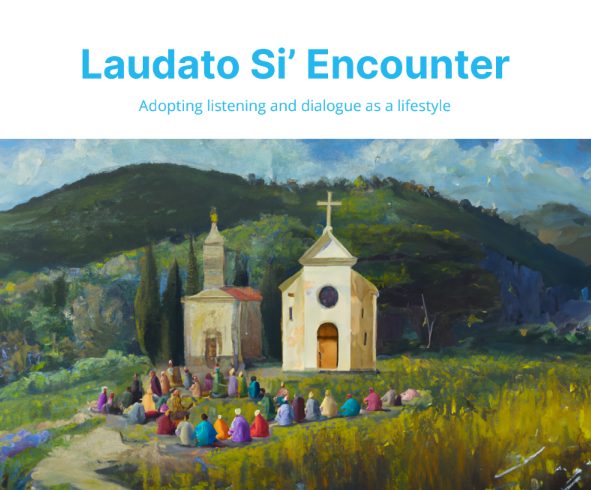
Laudato Si’ Encounter
Monthly intention
Prayer for listening
Monthly Reflection
Eco-conversion Story
Hearing Creation’s Cry
Hearing Creation’s Song
Take Action
LSM Core Values: Building Bridges
If you prefer, you can download this resource in PDF format by clicking here.
Monthly intention
October 2023
For the Synod: Let us pray for the Church, that she may adopt listening and dialogue as a lifestyle at every level, allowing herself to be guided by the Holy Spirit towards the world’s peripheries (Pope’s Prayer Intention)
“Care for nature is part of a lifestyle which includes the capacity for living together and communion. Jesus reminded us that we have God as our common Father and that this makes us brothers and sisters” (LS 228).
Go to top
Prayer for listening (from the LSM Prayer Book)
Most blessed holy Trinity, Creator, Savior and Ruah Through Your Word of life All was and is created, All was redeemed and is called to redemption, All was united in Your bosom of love and is called to live in communion.
Because of You, dear Trinity, All of creation is a constant exercise of listening to Your Word So that we can embody the Word in our own lives. Teach us, therefore, how to truly listen to Your creating and creative Word. Remind us that Your Word is present and can be heard in each living being.
May we listen and learn from Your message present throughout nature. Open our ears and our hearts and teach us strength and courage so that we may hear the pain and suffering of our sister mother earth and of those most affected by the socio-environmental crisis.
Amen.
Go to top
Monthly Reflection
We confirm our ‘yes’: Reflections on Mt 21:28-32
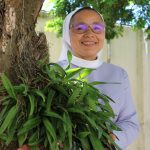 Laudato Si’ Animator Sr. Maria Inez, from the Congregation of the Missionary Benedictine Sisters of Tutzinz, is a member of the Community of the Immaculate Heart of Mary School in the city of Olinda, state of Pernambuco, Northeast of Brazil.
Laudato Si’ Animator Sr. Maria Inez, from the Congregation of the Missionary Benedictine Sisters of Tutzinz, is a member of the Community of the Immaculate Heart of Mary School in the city of Olinda, state of Pernambuco, Northeast of Brazil.
Going from the local Church to the ends of the world is the great appeal of this missionary month. We are compelled to leave our comfort zone, leave our self-indulgence, and go to the existential peripheries. Because it is bold, hope knows how to look beyond personal comforts, the small securities that shorten our horizons, to make us open ourselves to the great ideals that make life more beautiful and dignified, as taught by Pope Francis and all those who engage in his invitation to live God’s Project. A strong expression of this was our participation in WYD and our engagement with the Season of Creation actions, which are about letting justice and peace flow like a mighty river.
The liturgy of the first Sunday of October challenges us to confirm our “yes to God” and highlights the call to human beings to believe in the goodness of the Creator, to do God’s will. Joyous to be the children of God, we say “yes”. It is not an easy or simple task as it calls for letting go of our personal and petty projects. Saying “no” to God’s project is leaving the path that leads us to eternal happiness, to the glory of contemplating God face to face. So, let us dare to trust in God and be guided by his Word.
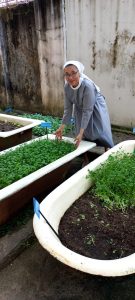 The Gospel reading (Mt 21:28-32) must be understood in the context of Jesus’ teaching (didaskalia). The narrative is the parable of the two sons. There is a connection between father, son, work, and vineyard. The Kingdom can be compared to a vineyard that must produce good and tasty fruit. Each human being is invited to work in the vineyard, in the day-to-day cultivation of this reality that is planted with our hands, a symbol of construction, of everyone’s synergy. In the Gospel for this Sunday, the eldest son’s response is “I don’t want to”. However, he repented, understood his important role in cultivating the vineyard, and attended to his father. The father came to the second son and made the same proposal. The son replied: “Yes, sir, I will”, but did not. Which of the two did his father’s will?
The Gospel reading (Mt 21:28-32) must be understood in the context of Jesus’ teaching (didaskalia). The narrative is the parable of the two sons. There is a connection between father, son, work, and vineyard. The Kingdom can be compared to a vineyard that must produce good and tasty fruit. Each human being is invited to work in the vineyard, in the day-to-day cultivation of this reality that is planted with our hands, a symbol of construction, of everyone’s synergy. In the Gospel for this Sunday, the eldest son’s response is “I don’t want to”. However, he repented, understood his important role in cultivating the vineyard, and attended to his father. The father came to the second son and made the same proposal. The son replied: “Yes, sir, I will”, but did not. Which of the two did his father’s will?
The parable referred directly to religious leaders, who criticized Jesus’ preference for sinners. The “sinners”, despised by the leaders of the people, were able to listen to John the Baptist, believe in his message and change their lives, while the leaders “did not believe in him”. It is not enough to show off as good people: it is necessary to do deeds of justice, to work for life and freedom. The Kingdom does not belong to those who consider themselves righteous but to sinners who believe and change their lives.
Questions for reflection
- United by the strength of prayer and anointed by the spirit of mission, what is your level of participation in the construction of an outgoing Church, as Pope Francis encourages us to do?
- Do you see a connection between the theme of today’s Gospel (Mt 21:28-32), “Yes to God”, and letting justice and peace flow like a mighty river in the context of the Season of Creation?
- If you can relate the two situations, what would it take for you to leave your local Church and experience the movement of being a synodal Church?
- Ask yourself whether during this Season of Creation, as a follower of Christ on our synodal journey, you have been able to live the experience of sharing, working, and praying so that our common home can once again teem with life.
- What was the impact of the actions taken in the Season of Creation 2023 on your role as a steward of Creation to safeguard the sustainability of the Planet, our Common Home?
Go to top
Eco-conversion Story
Eco-conversion: a story based on local challenges
Leonor de Freitas, Laudato Si’ Animator, Angola
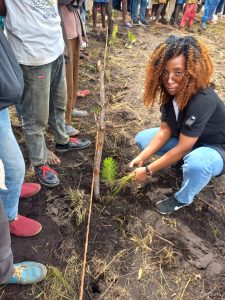 My eco-conversion story began in my teenage years, but only superficially because I took action only to comply with orders from the school principal. In my adulthood, it sprang from a challenge I was made to care for our common home. My persistence in caring for the environment and protecting our common home became more efficient with the reading of Pope Francis’ socio-environmental encyclical Laudato Si’. It was through that letter that I was able to rediscover my mission as a Christian to care for our common home.
My eco-conversion story began in my teenage years, but only superficially because I took action only to comply with orders from the school principal. In my adulthood, it sprang from a challenge I was made to care for our common home. My persistence in caring for the environment and protecting our common home became more efficient with the reading of Pope Francis’ socio-environmental encyclical Laudato Si’. It was through that letter that I was able to rediscover my mission as a Christian to care for our common home.
What I have seen, considering the scenario around me, is a lack of commitment to others on the part of many Christians. This is because eco-conversion is precisely a concern we must share toward all that surrounds us, especially when it faces destruction due to irresponsible actions by human beings themselves. This human being has forgotten that neighbors were facing destruction.
However, we must find mechanisms to defend this neighbor, Nature, as a being that is also entitled to having a legal personality and rights to be protected. This guarantee and protection must be part of governments’ priorities, hence the need to train communities to defend the Rights of Nature in their local realities.
It is important, though, to respond to the current environmental crisis that we are all experiencing and feeling. In Angola we are witnessing environmental degradation caused by human actions, partly due to a total lack of knowledge about the care for creation and the consequences that can arise from not doing so.
Regarding the problems we are experiencing, it is important that we continue to raise awareness of best practices in terms of waste disposal, especially among people who live near drainage ditches to discourage harmful practices for public health in general and for marine environments in particular. Hence the necessary persistence in public actions to encourage environmental protection.
Therefore, it is important to give space to Nature so that she can do her job and exist as the Creator intended it. To that end, a profound spiritual transformation is necessary, a new spirituality, which implies repentance, a change of minds and hearts, new attitudes and new relationships.
“Change is something desirable, yet it becomes a source of anxiety when it causes harm to the world and to the quality of life of much of humanity” (LS 18).
Go to top
Take Action
“Laudate Deum”, new exhortation by Pope Francis
After announcing that an “update” to Laudato Si’ was needed, Pope Francis will publish “Laudate Deum”, an apostolic exhortation on the care for our common home, on October 4.
In eight years, the signs of the times and human sciences have shown us that the challenges humanity is facing have deepened dramatically. Science has highlighted deepening global ecological challenges. This exhortation by Pope Francis is a reason for renewed hope.
Watch this event where scientists, religious and lay people share the most important messages of the new exhortation and help us understand how important they are for our daily lives.
Go to top
LSM Core Values: Building Bridges
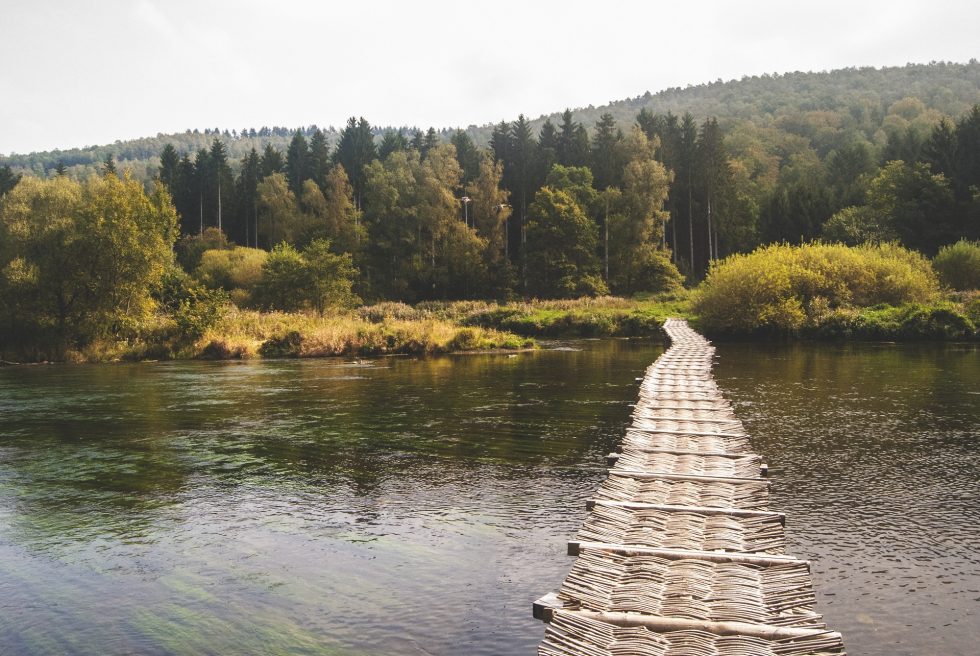
Learn more about each of the 10 core values that ground LSM’s mission and identity
Read the theological reflection here
Go to top






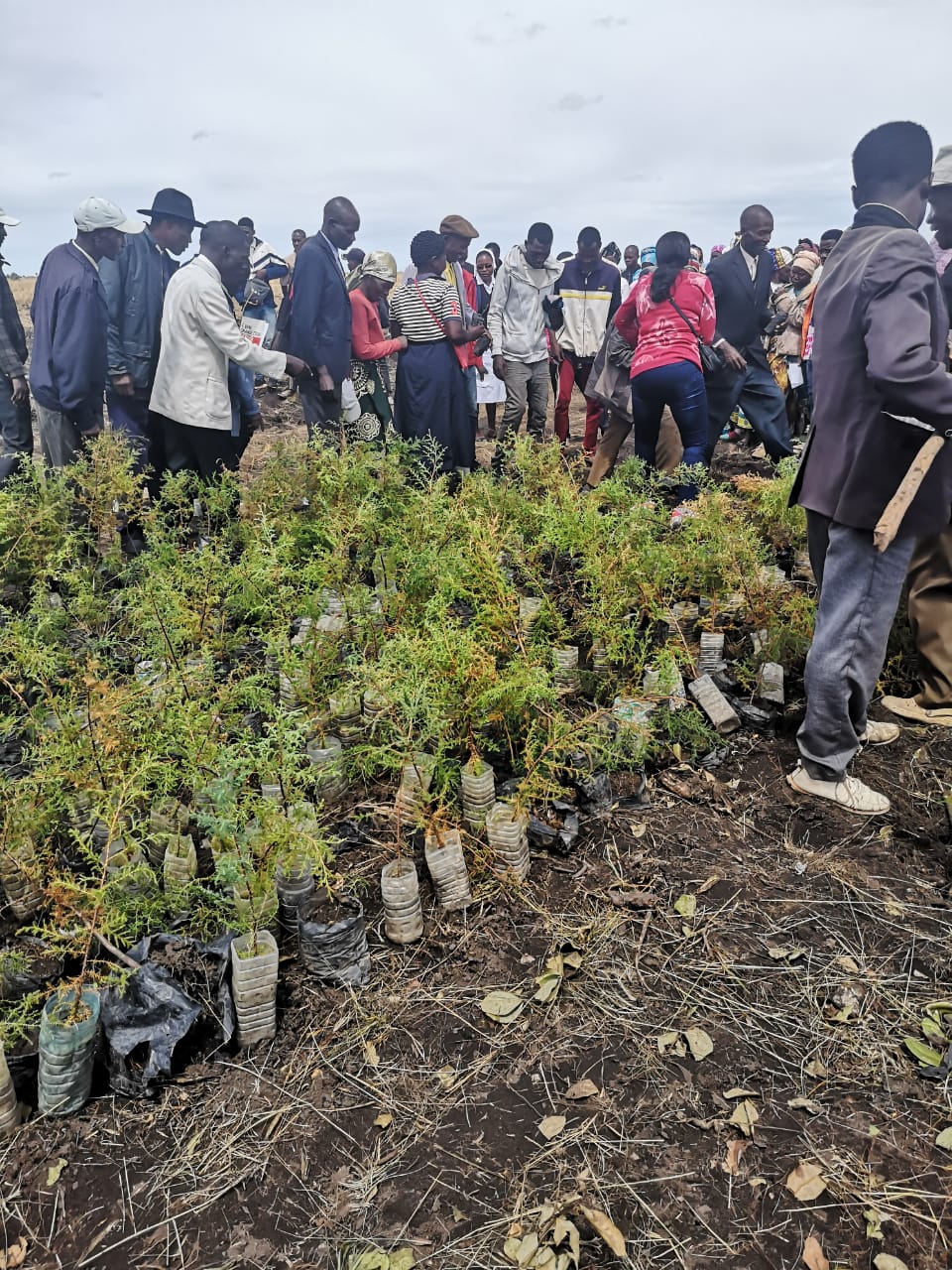
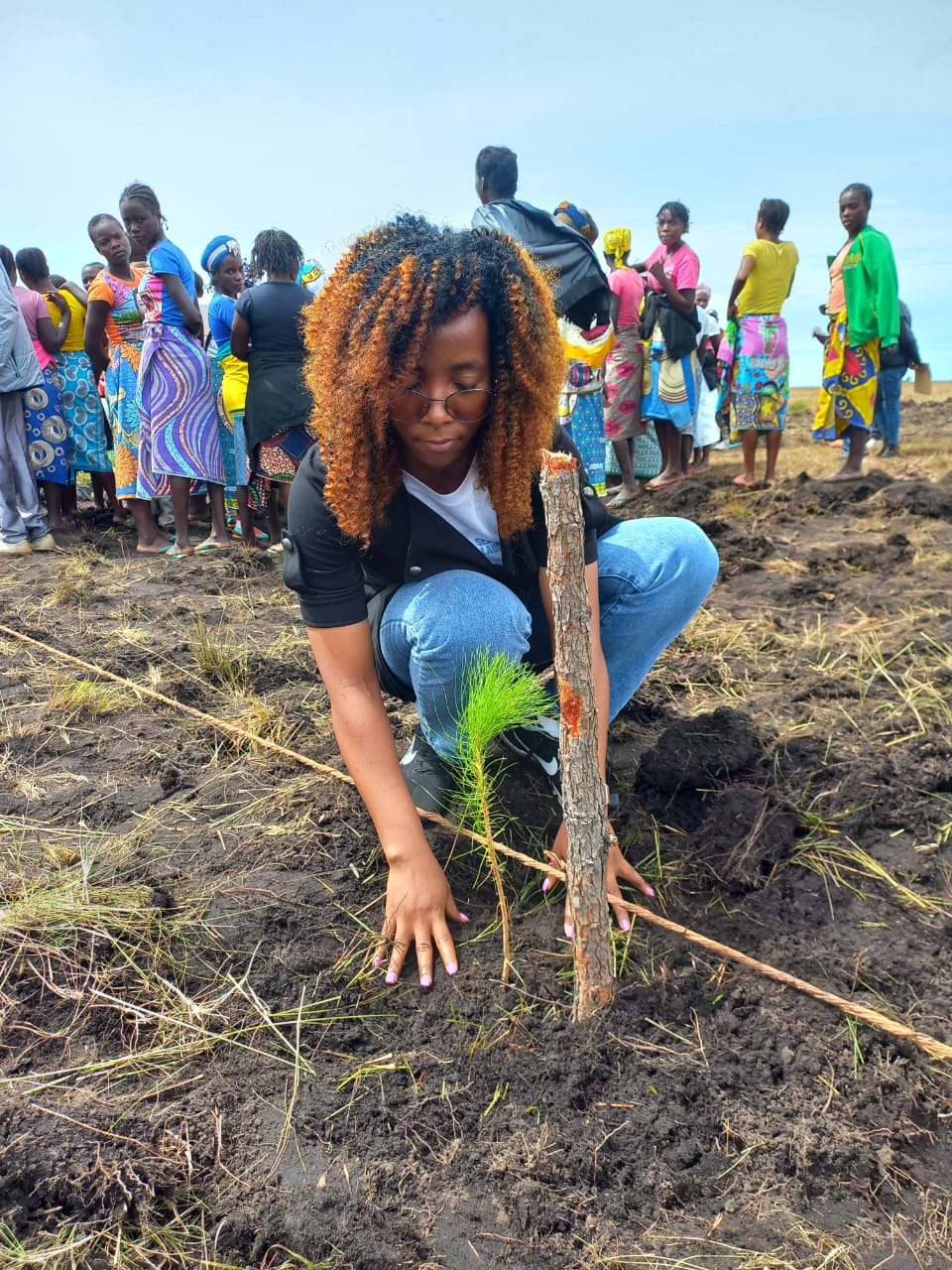
I feel this a big step for the movement and hope to part it.